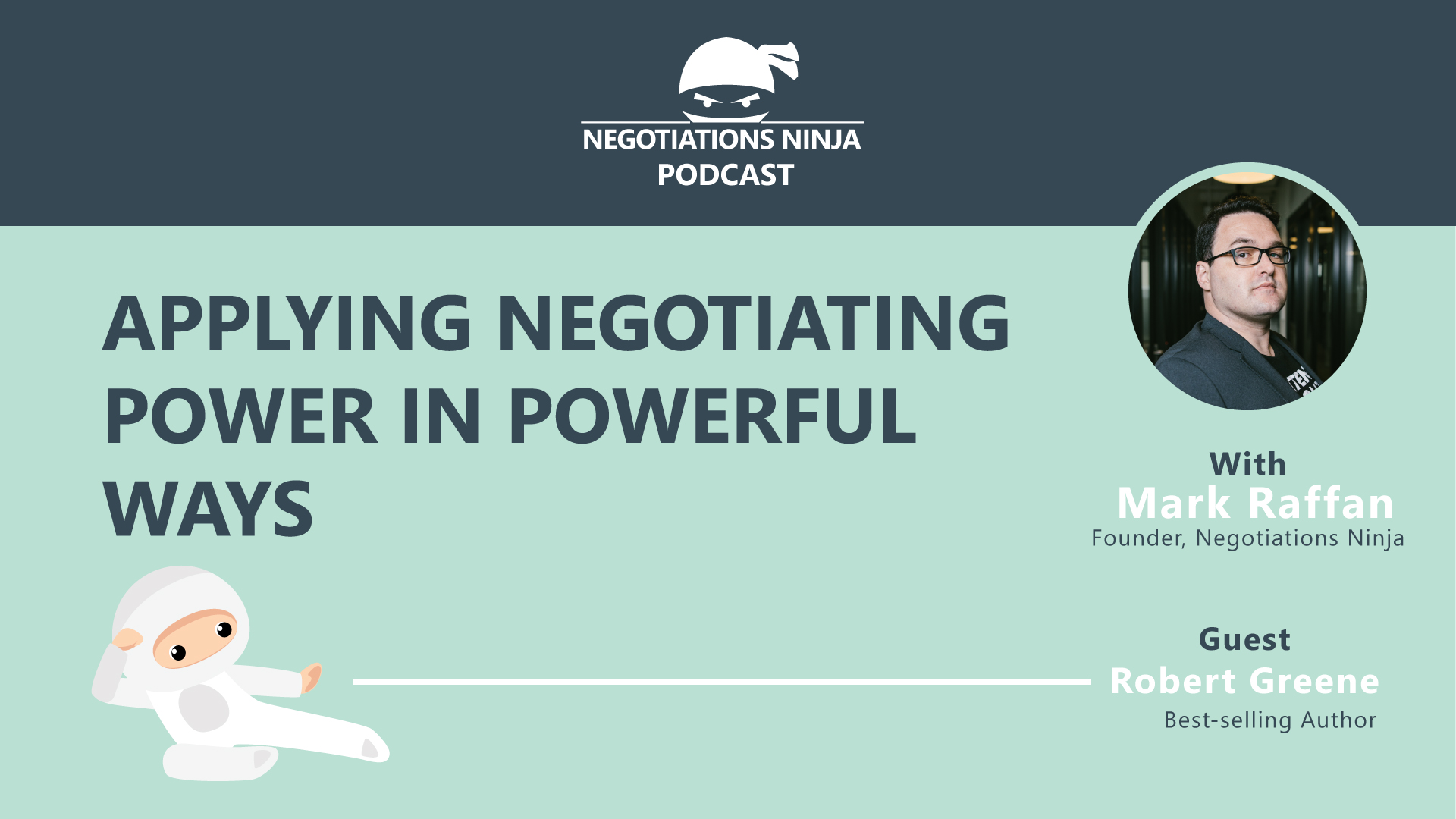It’s an extreme pleasure to speak with a person as thoughtful and well-versed in topics pertinent to negotiation as Robert Greene. He’s a prolific author who’s penned works that inform and highlight the timeless principles behind great leadership, negotiation power, and influence. In this conversation, we discuss why power is not always built on bad motives, why using misdirection and masked intentions can be beneficial to negotiators, how predictability is the death of good negotiations, action VS planning in negotiation, and more.
Join us for this wide-ranging but insightful conversation. In characteristic style, Robert shares his well-researched insights on a number of topics you’ll find applicable to both negotiation and procurement.
Outline of This Episode
- [1:40] Robert’s background and the reasons behind his most recent book
- [4:31] Is it naive to wonder why we can’t all get along?
- [8:17] Negotiation power is not necessarily corrupt or built upon bad motives
- [12:09] What does it mean to mask intentions and use misdirection?
- [14:26] Predictability is the death of many negotiations
- [20:07] Why is fearlessness so important?
- [22:37] Action VS planning in negotiation styles
- [28:51] An example of how short-term thinking caused a company to go under
People should be judged by their outcomes, not their motives
There is a great deal of nuance involved in all human interactions. Negotiations are no exception. But Robert points out that in all things we must remember that actions speak louder than words or the passionate expressions people make about their intended motives. If you want to know what a person is really about, take a careful look at the outcomes they’ve been instrumental in producing. That’s where you’ll see their true motivations and what they really care about.
This is one of the reasons it’s important for negotiators and procurement professionals to do their homework. You need to know who you are dealing with on the other side of the table and what outcomes they’ve pushed for in the past. It’s a simple observation that can serve powerfully toward understanding how the person operates and what they truly want. Listen to learn more about how looking at past outcomes can inform present negotiations.
Leverage comes from knowing more than your opponent
In every negotiation, we are seeking leverage that enables us to move forward with our desired outcomes. Robert notes that one of the primary points of leverage is in knowing more than your counterpart. That comes from research and preparation, no doubt, but you can also position yourself in ways that prevent your opponent from knowing as much as you do. Robert explains how it can be done by masking your own intentions and using misdirection to uncover the goals and intentions emanating from the other side of the table.
There is a subtle difference between this kind of masking and misdirection and unethical manipulation and Robert does a great job of describing the line between the two. Be sure you listen so you don’t miss these vital details.
Fearlessness in negotiation is not what you think it is
Robert says that great negotiators are fearless individuals, but he’s quick to clarify that the kind of fearlessness he refers to is an intentional step into self-awareness. All of us are afraid of something: rejection, failure, confrontation, being on our own, negative perceptions of others, and more. If we are to be fearless at the negotiating table we have to be self-reflective in a way that makes us aware of the fears that drive us. That’s the only way we can mitigate their hold on us. When we can do this, we are able to interact in negotiations without being pushed around by our own fears and without being manipulated by the other side through those fears. Robert’s keen insight on this point is invaluable. Don’t miss it.
Everybody considers themselves a strategist, but few are grand strategists
Everyone thinks of themselves as strategists, and truly, just about everyone in the procurement or negotiation space engages in a fair amount of planning. But Robert makes a distinction between those who strategize on a surface level and those he considers to be “Grand Strategists.” A Grand Strategist is a person who…
- Considers the longer game by elevating themselves above the moment’s needs so they can plan in light of the bigger, long-term picture
- Possesses a greater vision for the possibilities ahead
- Is clearer about goals and why they need to be attained
- Understands the circumstances that might intervene and throw them off course
- Has thought deeply about the overall situation (not just the business side, but also the political side)
There are tremendous advantages that come from this kind of grand strategy. Decisions can be made in present situations that will lead to long term benefits and stability, which serves the organization for years to come.
Anything Robert pens is worth reading and the insights he shares in this episode are definitely worth listening to and applying. I hope you listen.
Resources & People Mentioned
- BOOK: The 48 Laws of Power
- BOOK: The Art of Seduction
- BOOK: The 33 Strategies of War
- BOOK: The 50th Law
- BOOK: Mastery
- BOOK: The Laws of Human Nature
- 50 Cent
- John D. Rockefeller
- Machiaveli
- BOOK: The Art of Negotiation
SPONSOR: https://ScoutRFP.com/negotiation
Connect with Robert Greene
- Robert’s blog: https://powerseductionandwar.com/
- Robert on Twitter: @RobertGreene
Connect With Mark
- Follow Negotiations Ninja on Twitter: @NegotiationPod
- Connect with Mark on LinkedIn
- Follow Negotiations Ninja on LinkedIn
- Connect on Instagram: @NegotiationPod
- negotiations.ninja




